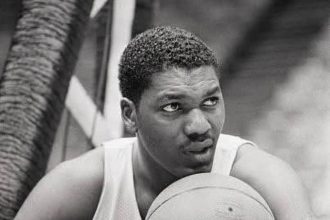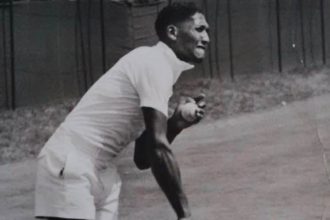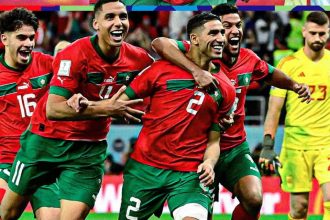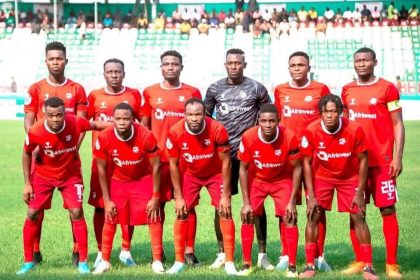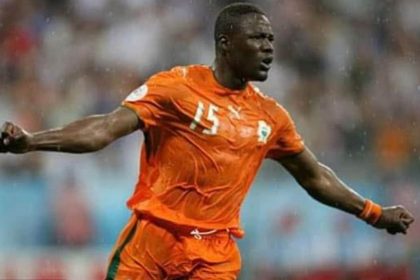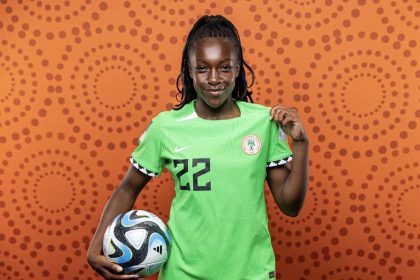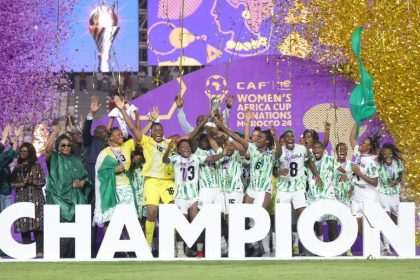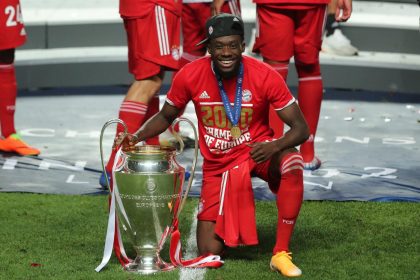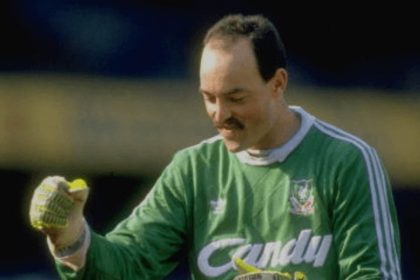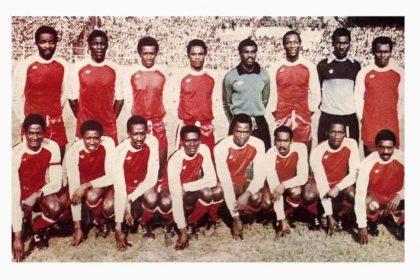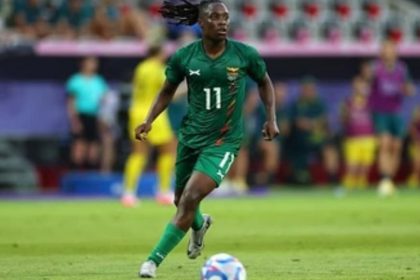The Ballon d’Or and the Best FIFA Men’s Player award, formerly known as the FIFA World Player of the Year, are two of the most prestigious individual honours in football. Each award recognizes individuals who have distinguished themselves in the game and have proved to be a good way to measure who has been exceptionally good during specific eras. Every year, best players in the world fight it out for these two awards widely recognized as football’s most illustrious prizes.
In actual fact, more than just a name differentiates these two awards. Established in 1956 by French magazine France Football, the Ballon d’Or was initially awarded only to players from Europe and was widely known as the European Footballer of the Year award. In 1995, the Ballon d’Or was expanded to include all players of any origin that have been active at European clubs. The award became a global prize in 2007, with all professional footballers around the world being eligible. Between 2010 and 2015, in an agreement with FIFA, the award temporarily merged with the FIFA World Player of the Year, and was known as the FIFA Ballon d’Or. That partnership ended in 2016, and the award reverted to Ballon d’Or, while FIFA also reverted to its own separate annual award, the Best FIFA Men’s Player.
Unlike the Ballon d’Or which has been around since 1956, the FIFA World Player of the Year was launched in 1991 by the sport’s world governing body to honour the best male player in global football. Originally a single award for the world’s best men’s player, parallel awards for men and women were awarded from 2001 to 2009. The men’s award was subsumed into the FIFA Ballon d’Or in 2010, while the women’s award remained until 2015. After 2015, both men’s and women’s awards became part of the Best FIFA Football Awards.
The winner of Ballon d’Or is selected by an international panel of journalists from various countries. Each journalist submits a list of their top five players, with points awarded based on rankings. Since 2022, the Ballon d’Or is awarded based on the player’s performance over the European football season (August to July) rather than the calendar year. The Best FIFA Men’s Player award involves a broader voting pool, with votes coming from national team coaches, captains, journalists and fans. FIFA’s award also considers performance over the calendar year. The silverware players take home for each award is inevitably different. The Ballon d’Or takes the form of a golden ball, while FIFA’s The Best is a platinum trophy that resembles the smaller version of the world cup.
England forward, Stanley Matthews, was the first winner of Ballon d’Or while German legend, Lothar Matthäus, was the first winner of the inaugural FIFA award in 1991. Just eleven African footballers have been ranked among the top 10 footballers in the world till date by FIFA.
Abedi Ayew Pelé of Ghana was the first African player to be ranked in the top 10 shortlist of FIFA award. The former captain of Ghana national team was joint No. 9 with one of Italy’s best-loved football icons, Franco Baresi, in 1992. Ayew’s exploits at Olympique de Marseille’s European campaigns of that year, coupled with the Man of the Tournament prize that the former Lille of France won at 1992 Africa Cup of Nations in Senegal made the attacking midfielder one of the players that shone brightest that year.
Following in the footsteps of Ayew was his Black Stars teammate Anthony Yeboah of the Bundesliga side Eintracht Frankfurt, who was listed No. 9 in 1993. Yeboah, regarded as one of the most prominent and prolific goal scorers in Ghanaian and African football history quickly established himself and became the first African Bundesliga club captain around this time. Renowned for his incredible goals, the Black Stars forward won the Bundesliga golden boot on two occasions (1993, 1994), and earned himself a place among the global legends of that era.


George Weah of Liberia is the only African Ballon d’Or and FIFA World Player of the Year winner in history, winning both awards in 1995. This was a landmark moment in the history of African football. Weah scored 8 goals in eleven Champions League matches to push PSG to the semifinals of that year’s edition before making a big transfer move to AC Milan in the summer. The first former professional footballer to become a Head of State was No. 2 on global ranking in 1996.

Nigeria’s gold medal-winning Olympic 1996 football captain, Nwankwo Kanu, was No. 6 that same year that Weah was ranked No. 2. Kanu is widely considered as one of the greatest African footballers of all time. A member of the Arsenal ‘Invincibles”, he was named by the club as one of its greatest ever players. Kanu is one of the few Africans to win the FIFA U-17 World Cup medal, UEFA Champions League, UEFA Super Cup, an Olympic gold medal, an Intercontinental Cup, three Eredivisie titles, three FA Cup medals and two African Player of the Year awards, among others.



Year 2005 was a glorious one for Africa on the world stage when an unprecedented four footballers from the continent were in the 30-man shortlist for the FIFA World Footballer of the Year award. Cameroon’s Samuel Eto’o’s third place on the list was the highest by any African as at then since the 1995 edition won by Weah. Other Africans on the historic 2005 list were Ivorian Didier Drogba (No. 10), Ghanaian Michael Essien (No. 21), and Nigerian Austin Jay-Jay Okocha (No. 26).




Eto’o and Drogba were again the numbers 5 and 6 in 2006. The duo went ahead to be the only African players to appear on the top 10 shortlist for the next six years after this. Eto’o’s prolific effort for Barcelona was rewarded again when he was ranked No. 7 in 2008. In 2009, the Ivorian was No. 6 while the Cameroonian was No. 9. Drogba was listed No. 9 and 8 again in 2010 and 2012 respectively while Eto’o was ranked No. 8 in 2011.
Riyad Mahrez of Algeria led the hugely unrated Leicester City to the summit of English football by winning the Premier League and was named number 7 in 2016. Two seasons before Leicester’s title triumph, they were in the Championship. Twelve months before, they looked odds on for relegation. But for Leicester, odds exist to be defied. The blues turned 5000/1 underdogs into championship reality.


Senegal’s international, Sadio Mané, was ranked No. 4 on the prestigious global award list in 2019 due to his blistering form for Liverpool. Mané, known for his pressing, dribbling and speed, also ended the season as a joint highest goal scorer with 22 league goals in England with his fellow two other African compatriots Mohammed Salah of Egypt and Gabonese’ Pierre-Emerick Aubameyang, who were ranked numbers 10 and 20 respectively. Mane retained his No. 4 spot in 2020 after securing the Premier League title for Liverpool for the first time in exactly 30 years at the end of the 2019-20 season. Mane’s Liverpool’s teammate, Salah, finished third for the Best FIFA Men’s Player in 2018 and 2021, and finished fifth in the 2019 and 2022 Ballon d’Or, respectively. In 2023, Salah became Liverpool’s all-time Premier League top goal scorer, and also became the fifth player to score 200 goals for the club. Mane was ranked 6th and Morocco’s fullback, Achraf Hakimi of PSG, considered as one of the best right fullbacks in the world 8th in 2022 due to his heroics at 2022 World Cup in Qatar, where he inspired Morocco to the semifinals, the first time in the history of African football.




Nigerian Victor Osimhen was the only African among the top 10 nominees for the Ballon d’Or and the Best FIFA Men’s Player award in 2023. Osimhen finished in eighth place at the 2023 Ballon d’Or ceremony, becoming the first Nigerian to make the top 10 of the award. The 2023 African Footballer of the Year was also ranked 5th for the Best FIFA Men’s Player the same year. Osimhen’s form in the shirts of Napoli that year contributed hugely to this. The forward, regarded as one of the best strikers in the world, inspired the Partenopei to the summit of Italian football once again after 33 years of waiting for the Scuddetto with 26 goals to set the record as the first African to be the highest goal scorer in the history of Italian Serie A. The Super Eagles striker is known for his finishing, pace, strength and athleticism.


The 2024 Ballon d’Or was held on 28th October and Nigeria’s Atalanta FC blistering winger, Ademola Lookman, was the only African footballer on the shortlist. Lookman, who made his senior debut for Nigeria in 2022, eventually finished No. 14. As the Best FIFA Men’s Player for 2024 will be officially unveiled in January 2025, all eyes are on Lookman to follow in the footsteps of past African football greats ranked among the top 10 in the world for the prestigious FIFA’s men’s award.
References:
- “Salah, Mane, Keita make history as Liverpool wins 6th Champions League” By Abdur Rahman Alfa Shaban for African News, August 2019
- “Morocco Knock Spain Out of World Cup On Penalties” Al Majalla December 7, 2022.
- “African Ballon d’Or winners and nominees of the past and future” By Adam Clancy October 16, 2024 for Football Whispers
- McVitie, Peter. 31 October 2013
- “Who has won the most Ballons d’Or?” Goal.
- “Ballon d’Or and Best FIFA Men’s Player awards explained”. Sky Sports. 12 December 2016. Ed Dove.
- “The 50 Greatest African Players of All Time”. 2013.
- “Abedi Ayew Pele Ghanaian athlete” Encyclopedia Britannica
Follow this link too to subscribe to our YouTube channel https://youtube.com/@moorsportz?si=1CE96JXt2gFFKBXh
(Please note that we don’t have copyright ownership on the pictures).
Edited by Abimbola Ajayi


